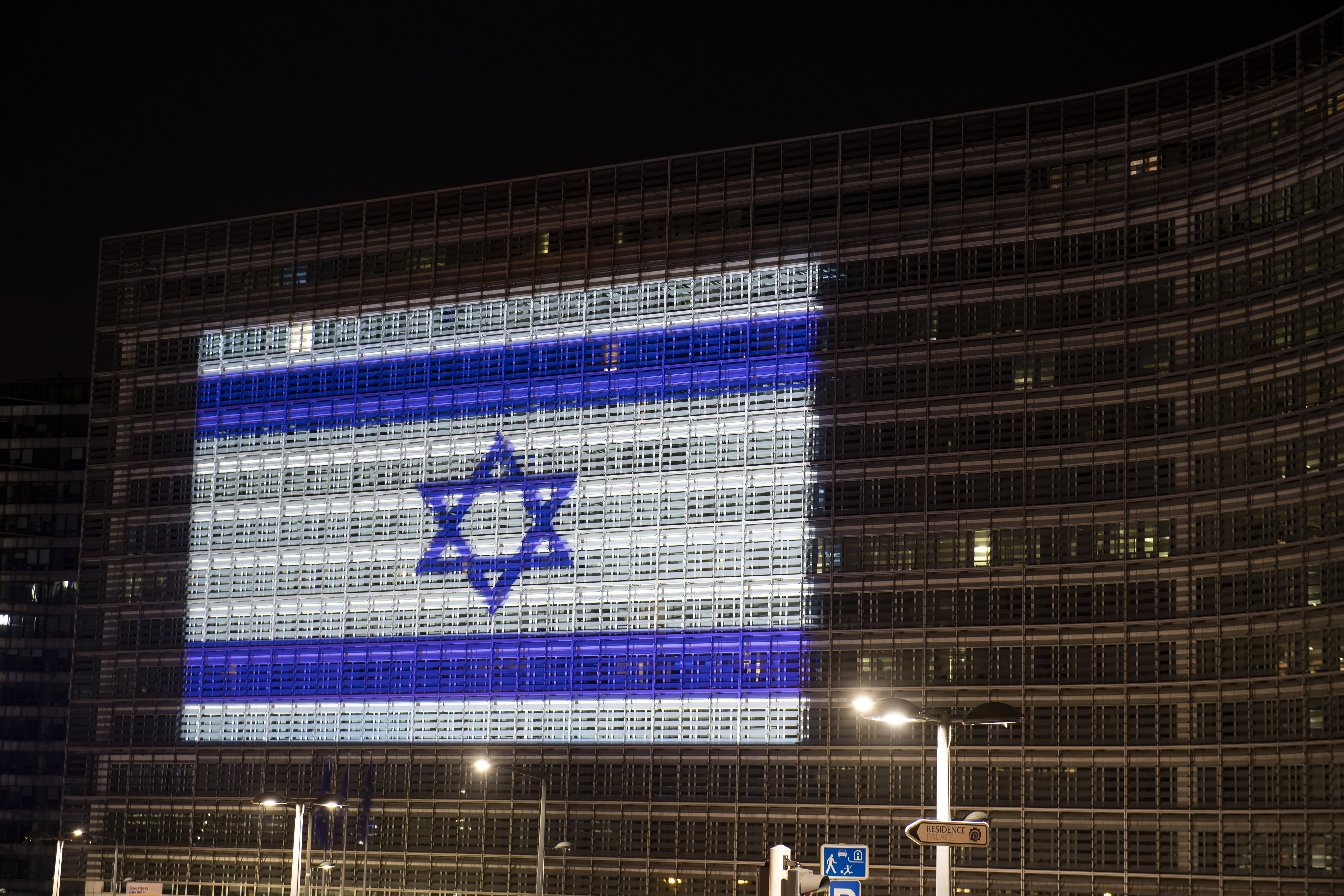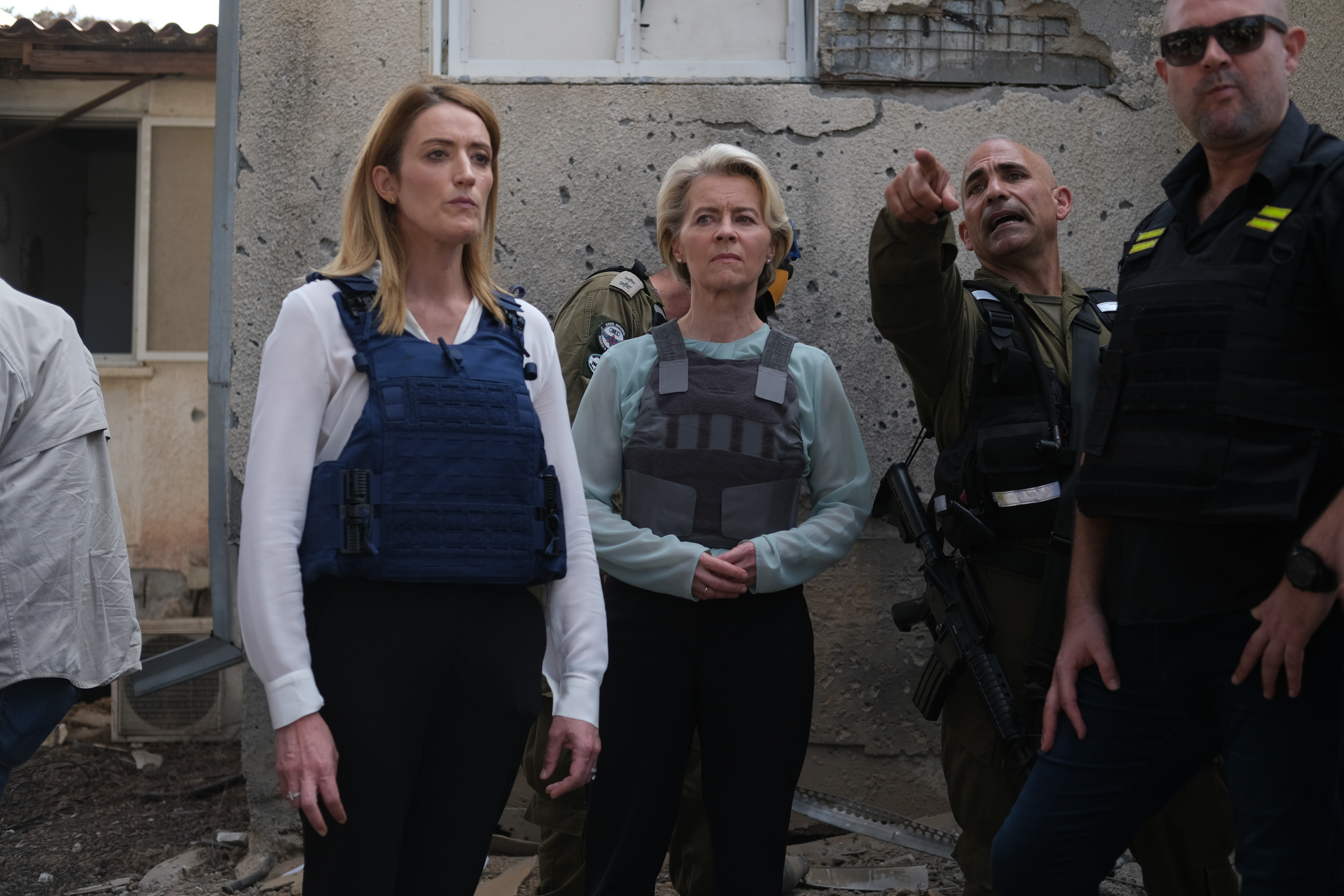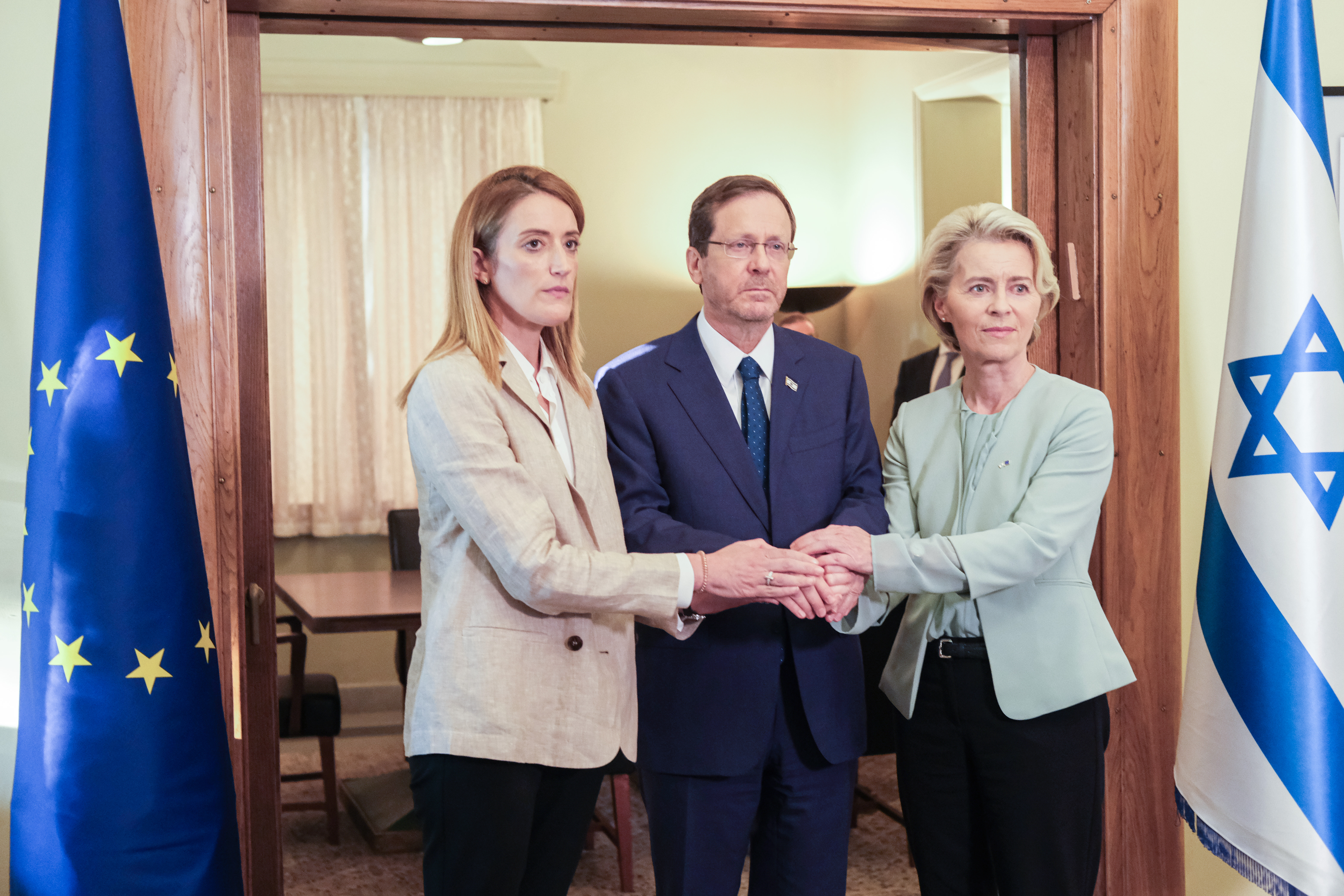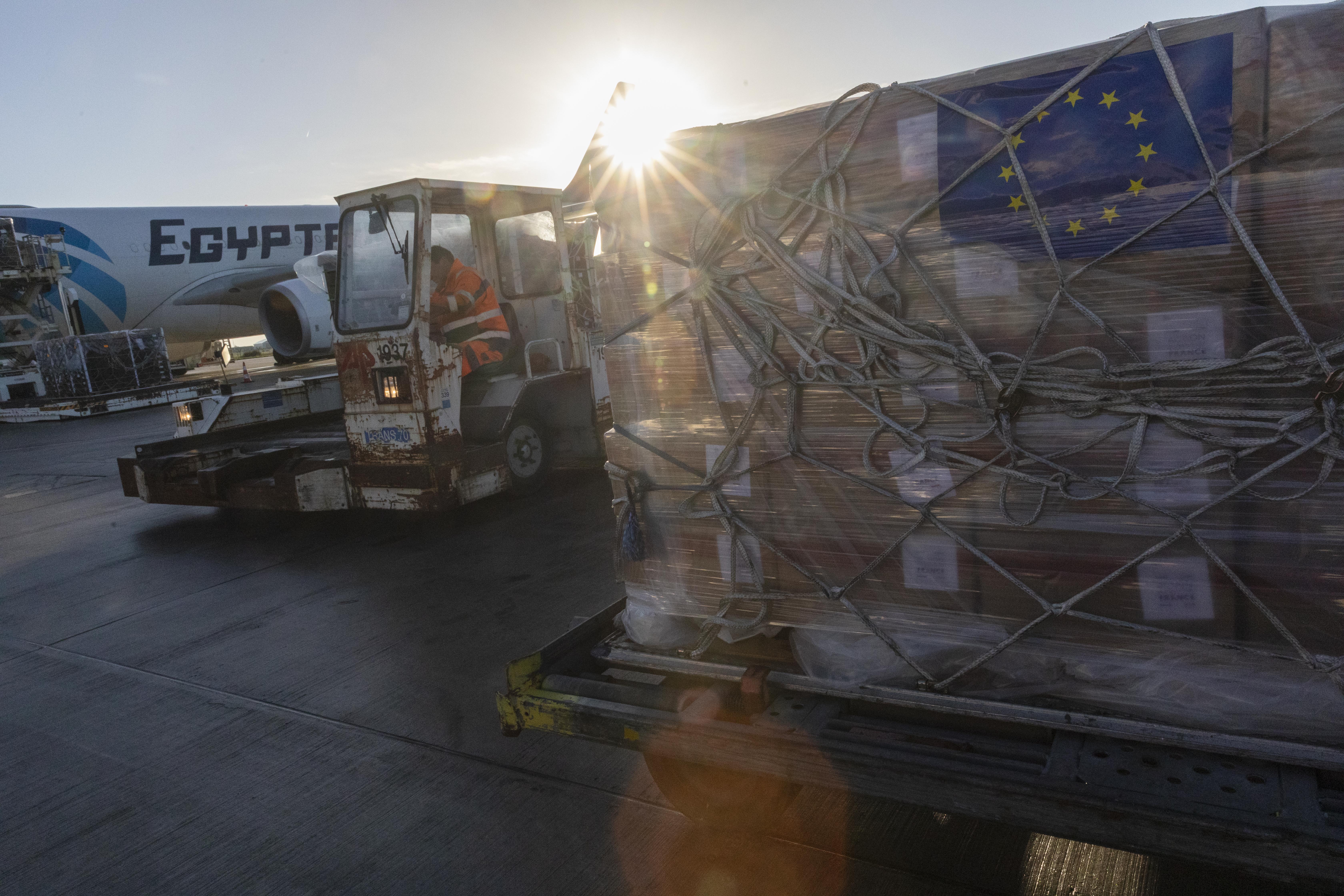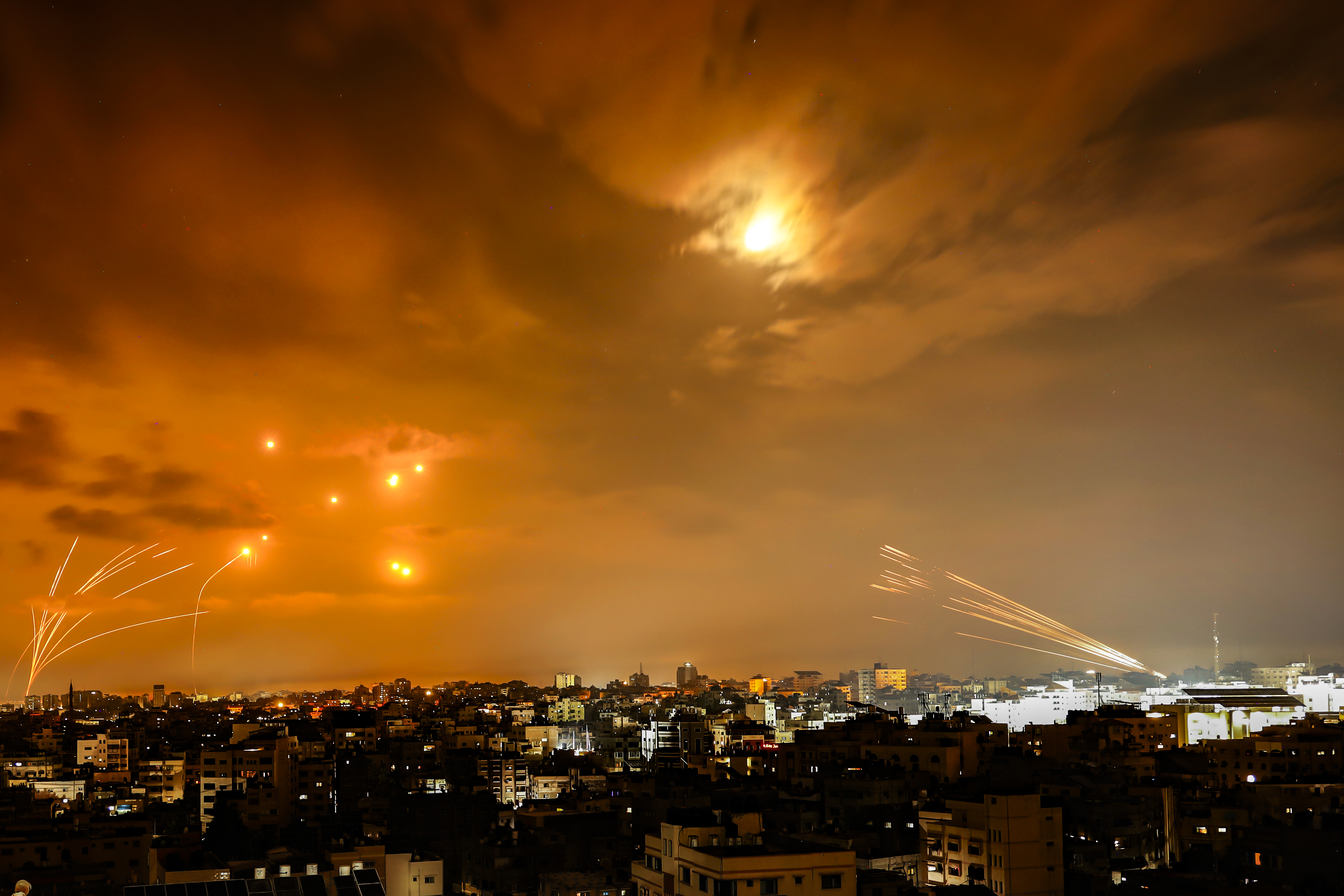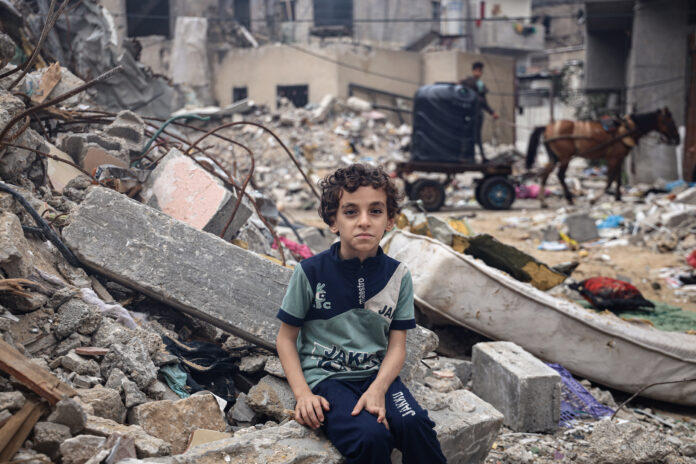
Catherine Feore looks at the EU’s response to events in Israel and the occupied Palestinian territories
On 7 October, we woke up to appalling news. Hamas had launched an assault on Southern Israel. Its full extent and the barbarity of its nature shocked the world. Hundreds of young people attending a festival were shot, bodies paraded, the atrocities celebrated by militants, nearby kibbutzim were entered and brutal killings carried out. It is estimated that 1,400 people were killed and more than 240 were taken hostage. In the immediate aftermath countries across the world and the European Union as a whole stood in solidarity with Israel.
The EU issued a joint statement on the same day condemning the senseless attacks and loss of life, adding that while Israel had the right to self defence, it must be done in line within the rules set in international law. European Commission President Ursula von der Leyen took the decision to project an Israeli flag onto the Berlaymont building and tweeted, adding her voice to those stating Israel’s right to defend itself and saying that the European Union stands with Israel. This seemingly uncontroversial statement of support raised concern in some quarters because it failed to explicitly mention that Israel’s action should be consistent with international law and international humanitarian law, very important caveats that set the limits between legitimate defence and crimes.
“The European Union as a whole stood in solidarity with Israel”
Israel’s response to the attack was swift and brutal. Gaza was placed under siege with access to basic amenities of food, water, electricity and fuel cut off. The Israeli Defence Forces called for the mass evacuation of the entire population of Northern Gaza, an estimated 1.1 million. It was reported that 6,000 bombs were dropped on Northern Gaza in the space of six days. Given that the territory is densely populated this inevitably resulted in a high number of deaths. Israel claimed that all targets were legitimate and the high number of casualties were the result of Hamas’ cynical tactic of using civilians as human shields.
“Israel’s response to the attack was swift and brutal”
At the European Council on 26 October, heads of government spent more than five hours discussing the wording in their conclusions on the situation. Opinion was deeply divided among the EU’s leaders, some were calling for a humanitarian ceasefire, some were calling for a humanitarian pause. The eventual compromise was a call for “unhindered humanitarian access, […] humanitarian corridors and pauses for humanitarian needs.” The plea was ignored and the siege and bombing continued.
In Gaza, it is now (15 November) estimated that at least 11,000 people have died, of this number more than 40% are children, more than 28,000 are injured, 2,700 are missing, approximately 45% of housing stock is destroyed or damaged and 50% percent of hospitals are no longer functioning. The territory remains under siege. Strikes have hit refugee camps, solar panels, fishing boats, schools, hospitals, mosques and churches. Research by BBC Verify found evidence to suggest that areas in the south, which were allegedly safe, were targeted. There are attestations that those who could choose to evacuate to the south were attacked as they evacuated. Doctors have had to carry out life saving surgical procedures without having access to anesthesia. There has also been a surge in violence against Palestinians in the West Bank, with entire villages being displaced and 163 Palestinians killed by Israeli forces or Settlers since 7 October, this brings the tally so far for 2023 to 371.
1.3 million people are currently living in shelters in #Gaza.
Overcrowding and lack of food, water, sanitation and basic hygiene, waste management and access to medication are resulting in a high number of cases of:
– acute respiratory infections: 111,000
– scabies: 12,000
-… pic.twitter.com/ZhiRDodqWL— Tedros Adhanom Ghebreyesus (@DrTedros) November 29, 2023
On 6 November, ambassadors from the 57 member states that make up the Organization of Islamic Cooperation called on all European institutions and EU member states to oblige Israel to commit to an immediate ceasefire and to halt the barbaric military assault on Palestinian civilians. They also called for Israel to be held accountable for its war crimes and crimes against humanity, as well as for an end to its 16-year illegal blockade of the Gaza Strip.
“The EU should not remain silent while a tragedy unfolds”
Criticism of the EU also came from within the institutions. Eight hundred officials signed a letter condemning “the patent show of double-standards which considers the blockade operated by Russia on the Ukrainian people as an act of terror whilst the identical act by Israel against the Gazan people is completely ignored.” The staff wrote that the European Union, which was awarded the Nobel Peace Prize for being a beacon of democracy, human rights, and the rule of law, should not remain silent while a tragedy unfolds. In failing to act, the staff wrote that the EU’s position “gives a free hand to the acceleration and the legitimacy of a war crime in the Gaza Strip”.
Statements made by the Israeli government suggest that there is a belief that indiscriminate actions and collective punishment of an entire population are legitimate. Israel’s President Herzog said: “It’s an entire nation out there that is responsible. It’s absolutely not true that civilians were not aware, were not involved”. Prime Minister Netanyahu, cited a verse from the bible where God calls for the prophet Samuel to kill all, including man, woman and child. A far-right minister, Amichai Eliyahu said that one of Israel’s options in the war against Hamas could be to drop a nuclear bomb on the Gaza Strip.
The UN Human Right Office issued a statement warning that Israeli actions, are pointing to a genocide in the making. There is increasing evidence of genocidal incitement coming from the highest levels of government. “Many of us already raised the alarm about the risk of genocide in Gaza,” the experts said. “We are deeply disturbed by the failure of governments to heed our call and to achieve an immediate ceasefire. We are also profoundly concerned about the support of certain governments for Israel’s strategy of warfare against the besieged population of Gaza, and the failure of the international system to mobilise to prevent genocide,” they said.
Nevertheless, while calling for humanitarian assistance in the near term, the EU is thinking of what will happen next. Following a recent meeting of foreign ministers, the EU’s High Representative Josep Borrell laid out six principles that would follow a truce.
Firstly, there can be no forced displacement of the Palestinian people out of Gaza to other countries. Secondly, the territory of Gaza cannot be reduced and there should be no permanent reoccupation of Gaza by Israeli Defense Forces, nor a return of Hamas to Gaza. Thirdly, Gaza cannot be dissociated from the rest of the Palestinian issue: the solution for Gaza has to be framed within the solution to the Palestinian problem as a whole.
On the “yes” side: A Palestinian Authority should rule Gaza, whose nature, role and legitimacy has to be defined by the UN Security Council. Secondly, the EU wants stronger involvement from Arab countries that is not just financial and limited to physical reconstruction, but also assistance in state building. Finally, a greater commitment from the EU in the region is required.
“The declaration was an attempt to create a new world order following the horrors of the Second World War”
On 10 December, we mark 75 years since the Universal Declaration of Human Rights came into being. I write mark, rather than celebrate, as daily news bulletins are a reminder that the values enshrined in the declaration seem like a distant dream as governments across the world appear to be moving further from its ideals.
The declaration was an attempt to create a new world order following the horrors of the Second World War. In its preamble it states that “disregard and contempt for human rights have resulted in barbarous acts which have outraged the conscience of mankind”.
The declaration, which has arguably been one of the most influential international agreements ever negotiated, paved the way for dozens of human-rights related treaties. Established under the Rome Statute, the International Criminal Court provides a means by which the most serious crimes must not go unpunished. Their investigation into whether crimes by Palestinian armed groups and the Israeli government have been committed must be supported. Nobel Laureate and French lawyer René Cassins is considered to be the main draftsman behind the declaration’s text approved by the UN General Assembly. In 1968 he wrote: “Now that we possess an instrument capable of lifting or easing the burden of oppression and injustice in the world, we must learn to use it.”
Photos from © EC 2023 © UNICEF/El Baba/Zaqout


